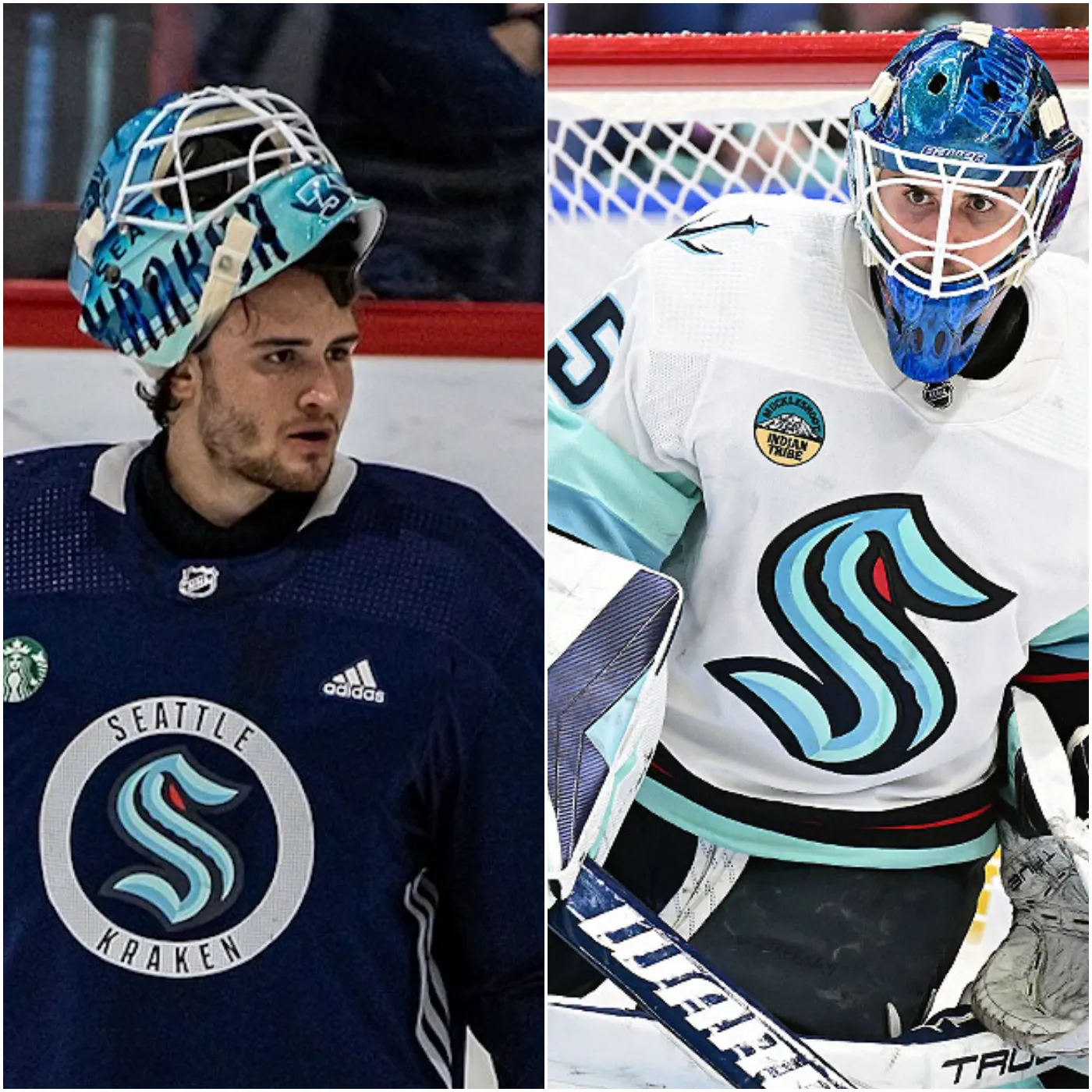The Rich History of NHL Stars with Dual Citizenship Representing Team USA or Team Canada

In the storied history of the NHL, several players have represented countries different from their birthplace, showcasing the dynamic and interconnected nature of international hockey. Whether it’s Bryan Trottier, who played for both Canada and Team USA, or Brett Hull, born in Canada but playing for the United States, the phenomenon of dual-citizenship NHL stars adds a fascinating layer to the sport’s international competitions.
Joey Daccord: A Dual-Citizenship Goaltender in the Spotlight
Joey Daccord, a dual-citizenship NHL goaltender, has become a topic of interest for the Canadian men’s national team. Despite being born, raised, and trained in Boston, USA, the Seattle Kraken’s standout netminder holds Canadian citizenship due to his father’s birthplace in Montreal. Daccord also possesses Swiss citizenship, as his mother was born in Switzerland.
Daccord has emerged as one of the NHL’s most consistent goaltenders this season, making him a strong candidate to start for Canada during the upcoming 4 Nations Face-Off in February. However, his absence from the initial roster was reportedly due to his lack of a Canadian passport. Whether this situation changes before the tournament—or even ahead of the 2026 Winter Olympics—remains to be seen. Another intriguing possibility is that Team USA or Team Switzerland could make a play for Daccord’s services, adding further intrigue to his international future.
Historical Precedents of Dual-Citizenship Stars

Joey Daccord’s situation highlights a rich tradition of NHL players with dual citizenship representing countries other than their birthplaces. Over the decades, numerous players have crossed national borders to represent either Canada or the United States, with some even playing for both.
One of the most notable examples is Bryan Trottier, who was born in Saskatchewan, Canada. Trottier represented Team Canada in one Canada Cup but later suited up for Team USA in another. His decision to switch allegiances drew significant attention and even controversy at the time.
In 1984, Trottier’s wife, Nickie Trottier, wrote a letter defending her husband’s choice after facing criticism.
Bryan Trottier’s Unique Perspective
Nickie Trottier’s heartfelt letter provided insight into her husband’s decision: “I’d like to start by saying Bryan will always love Canada, and he’s incredibly grateful for everything Canadian hockey organizations have done for his career. As a North American Indian, he’s always felt he had dual citizenship. When he became a U.S. citizen, it simply made it official. He will always have Canadian citizenship. Representing Team USA was his way of giving back to the country where he earned his living.”

This sentiment underscores the personal and cultural complexities involved in such decisions. For players like Trottier, national representation goes beyond borders—it’s about honoring connections and opportunities that shaped their lives.
As international hockey evolves, the stories of dual-citizenship players like Joey Daccord and Bryan Trottier reflect the sport’s growing global nature. Whether for reasons of family heritage, professional opportunity, or personal belief, these players bring unique narratives to the ice, enriching both the game and its history.
With Daccord’s future still undecided, fans and analysts alike will eagerly watch how his international career unfolds. Will he don the maple leaf for Team Canada, remain loyal to his Boston roots with Team USA, or perhaps honor his mother’s heritage by playing for Team Switzerland? Whatever the decision, it will continue the legacy of dual-citizenship stars who have bridged borders in hockey.







